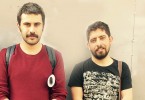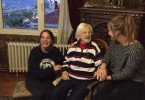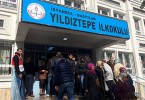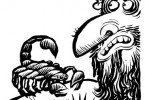Aslı TUNÇ
In the midst of the swine flu epidemic caused by H1N1 influenza virus, Novartis, a Swiss-based pharmaceutical company, invited a coterie of Turkish journalists to South Africa. The journalists from the dailies, Hürriyet, Radikal and Zaman enjoyed the “hospitality” of the drug company for three days in November. As ordinary readers we learned afterwards that Novartis had briefed them about the company’s “medical breakthroughs” in vaccination of malaria and tried to promote its products, activities and services in Africa. During the journalists’ trip to South Africa, not a single reporter or columnist asked a question on the company’s vaccination policies on swine flu or even mentioned the major pandemic hitting the world and Turkey. The Turkish journalists only indicated in their newspapers that they learned a lot about Novartis’s successes around the world and they got very impressed by the company’s activities. When asked on several TV channels, they declined to answer the question about who paid the expenses of the trip. This gave me a strong impression that this had been an all-expenses-paid trip. Also it made me wonder how many of the journalists in this country would have the courage and integrity to say no to those trips in the future.
It is not surprising that pharmaceutical companies work really hard to get their message out to the public and physicians through advertisements. However, there are also well-known ethical guidelines on journalistic integrity and independence when it comes to expenses-paid trips unless they are the only way to cover a significant event. For instance, in BBC editorial guidelines, it indicates that journalists should avoid conflicts of interest, real or perceived, remain free of associations and activities that may compromise integrity or damage credibility and refuse gifts, favors, fees, free travel and special treatment, and shun secondary employment, political involvement, public office and service in community organizations if they compromise journalistic integrity.
Unfortunately that this trip was far from starting a healthy discussion on journalism and the tactics of drug companies to gain publicity. In order to give you an idea how the journalists are used as a tool for manipulating the public opinion, let’s look at Novartis’s role in this giant market. Novartis is one of the largest pharmaceutical companies in the world, with annual sales of $ 42.6 billion. Its largest share (64 %) belongs to pharmaceutical division earning over $ 5 billion in annual sales. Its vaccination sales are not very high (4 % in total sales) and the company is ambitiously working to expand their slim share in the global market. The global vaccines sales in 2008 were $ 24 billion as compared to $ 18.5 billion in 2007. Additionally the global H1N1 Influenza vaccine market is estimated to be of 676 million in 2009 with the help of first doses being commercialized on September 30, 2009. The H1N1 vaccine market is expected to be at $ 7.03 billion in 2011. So let’s face it, there is a lot of money involved in this industry and Novartis is one of the major players in this game. As you know, Turkey recently launched a mass immunization program against the pandemic and purchased first part of shots, 500,000 doses to be applied to health care workers and pilgrims going to Mecca, from Novartis. So the journalists’ free trip should be analyzed as a part of a bigger picture where issues of human health and serious money intertwine with the lack journalistic integrity.







